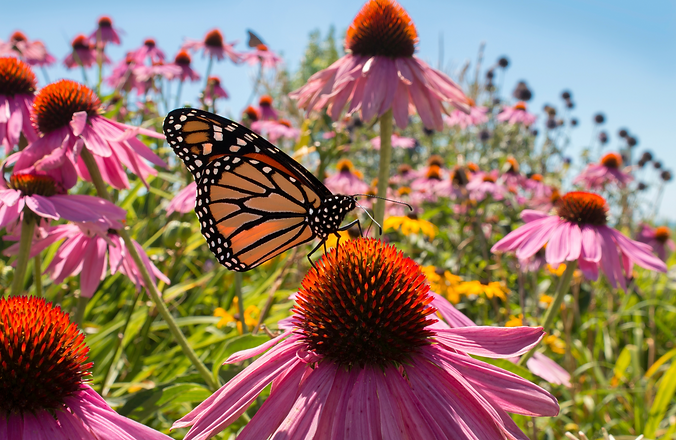Planting for
the Planet

Native plants are a crucial puzzle piece to the conservation of biodiversity. The benefits provided by native plants contribute to entire ecosystems, food security and human health. We describe 6 reasons as to why you should plant native species.
Photo Retrieved From: The Plant Native
Benefits to Planting Native Species
Why Plant Native?
Cultural Significance
Air and Water Quality
Native plants have important cultural connections for Indigenous people. Native plants have been used for centuries as medicine, food, material, a part of ceremonies and connection to culture. (Turner et al., 2012)
Native plants do not need to be mowed reducing gas emissions from lawn mowers. Native species are better suited to the local environment requiring less supplemental fertilizers which contribute to poorer water quality. ("Native Gardening", n.d.)
Support Local Wildlife
Require Less Water
Native plants require vital habitat, food, and nectar for a wide range of species!
("Why Native Plants Matter", 2017)
Native plants are often drought tolerant conserving water utilization and requiring less maintenance from the gardener!
(Garber et al., 2023)
Support Healthy Soil
Genetic Diversity
Native plants have symbiotic relationships with microbes. The presence of these relationships enhances decomposition and nutrient cycling.
(Gairola et al., 2023)
Pollinators can carry seeds/pollen of native plants in a backyard garden to wild populations of that plant. This interchange of genes increases the genetic diversity of the wild population and their ability to adapt to climate change.
